Eric Ragan
CaptainCook4D: A dataset for understanding errors in procedural activities
Dec 22, 2023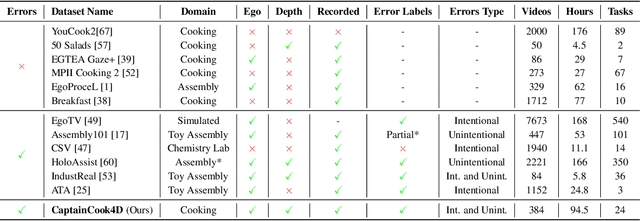

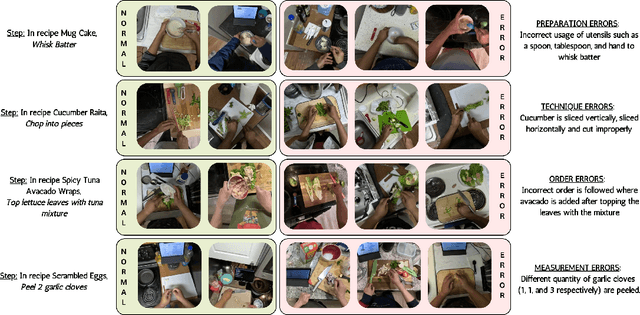
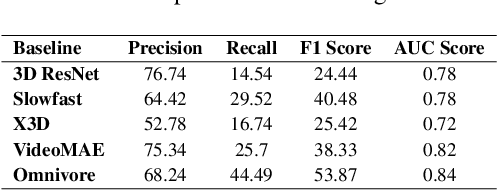
Abstract:Following step-by-step procedures is an essential component of various activities carried out by individuals in their daily lives. These procedures serve as a guiding framework that helps to achieve goals efficiently, whether it is assembling furniture or preparing a recipe. However, the complexity and duration of procedural activities inherently increase the likelihood of making errors. Understanding such procedural activities from a sequence of frames is a challenging task that demands an accurate interpretation of visual information and the ability to reason about the structure of the activity. To this end, we collect a new egocentric 4D dataset, CaptainCook4D, comprising 384 recordings (94.5 hours) of people performing recipes in real kitchen environments. This dataset consists of two distinct types of activity: one in which participants adhere to the provided recipe instructions and another in which they deviate and induce errors. We provide 5.3K step annotations and 10K fine-grained action annotations and benchmark the dataset for the following tasks: supervised error recognition, multistep localization, and procedure learning
Machine Learning Explanations to Prevent Overtrust in Fake News Detection
Jul 27, 2020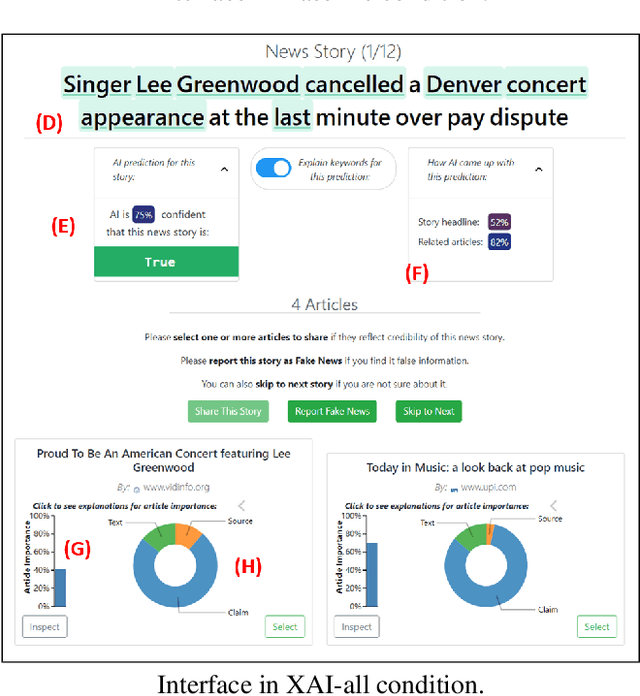

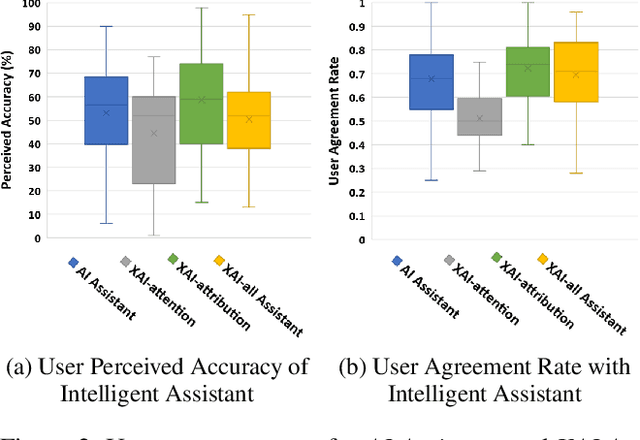
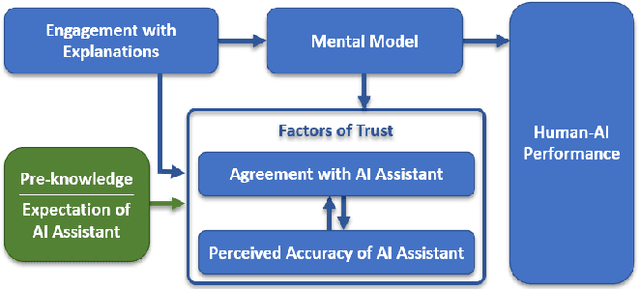
Abstract:Combating fake news and misinformation propagation is a challenging task in the post-truth era. News feed and search algorithms could potentially lead to unintentional large-scale propagation of false and fabricated information with users being exposed to algorithmically selected false content. Our research investigates the effects of an Explainable AI assistant embedded in news review platforms for combating the propagation of fake news. We design a news reviewing and sharing interface, create a dataset of news stories, and train four interpretable fake news detection algorithms to study the effects of algorithmic transparency on end-users. We present evaluation results and analysis from multiple controlled crowdsourced studies. For a deeper understanding of Explainable AI systems, we discuss interactions between user engagement, mental model, trust, and performance measures in the process of explaining. The study results indicate that explanations helped participants to build appropriate mental models of the intelligent assistants in different conditions and adjust their trust accordingly for model limitations.
 Add to Chrome
Add to Chrome Add to Firefox
Add to Firefox Add to Edge
Add to Edge